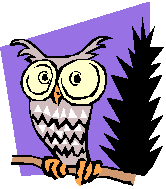What do you hold correct?
Please answer first spontaneously - and then again after some rethinking
Please answer first spontaneously - and then again after some rethinking
-
Question 1:
- a) Do we know the concept of a rectangle from experience?
- b) Or do we see or recognize rectangles because we have a concept of a rectangle?
Question 2:
- a) During perception, does the brain predominantly deal with the incoming data?
- b) Or do these data rather modulate the inner monolog?
Question 3:
- a) Are data identical with information?
- b) Or is information something into which the brain turns the data?
Question 4:
- a) Is the outside world what was given to us spontaneously?
- b) Or are the judgements on the outside world given to us spontaneously?
Question 5:
- a) Is "truth" the congruence of statement and fact?
- b) Or do we sense the congruence of statement and knowledge as "true"?

My answers to the questions of the test
-
On Question 1:
- a) Rectangles do practically not occur in nature. Thus, they cannot be the cause for forming the concept of the rectangle.
- b) As with all criteria, we also apply the criterion = the self-generated (mostly rationally constructed) concept of the rectangle to things so that the brain, when seeing four points (e.g. stars) tends to supposedly see a rectangle (e.g. as constellation of the Big Dipper and the Little Dipper).
On Question 2:
- b) As interpreting organ, the brain is predominantly occupied with interpreting sensory stimuli. The inner monolog required for the interpretation of vision demands at least 80 % of its activity.*
*see Wolf Singer, Der Beobachter im Gehirn (The Observer in the Brain), Suhrkamp stw 2002, p. 101 et seq - Pöppel in arte: 80-90 %On Question 3:
- b) Information is the result of plausible interpretation of data, with their plausibility being aligned with expectation. Thus, they become helpful. However, there is always the danger to miss the unexpected. On Question 4:
- a) In order to understand many phenomena, it is rational to assume an outside world independent of the consciousness. But:
- b) Spontaneously, we always experience an already interpreted outside world in terms of judgements as for example "this is a dog", which presupposes the knowledge of which prominent features independent of the breed belong to the definition of a dog.
On Question 5:
- a) What can be considered by us as "true" outside our howsoever natured knowledge? Shouldn't any dualistic theory of "objective truth" be eliminated by merely asking this question, as nobody could want to accept as true what he does not know, without depriving the concept of truth of any meaning?
- b) We always can only judge what we know explicitly and implicitly, so what we have in our mind. If we have the impression/the feeling that the said corresponds to the knowledge, we accept the said as true. This knowledge helps to come to an intelligent handling of the situation. Moreover, it is easier to be tolerant towards dissenting honest opinions.
The world that we know is the totality of our judgements on this world,
which are based on our understanding.
For every act of cognition is relative to the ways and means of obtaining cognition.
How could it be any different?